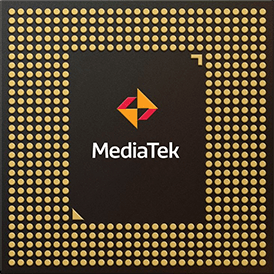
MediaTek Helio X30 Benchmark, Test and specs
Last updated:
The MediaTek Helio X30 has 10 CPU cores and can process 10 threads at the same time. The processor was presented in Q2/2017 and is based on the 3. Generation of the Mediatek Helio series. In the Geekbench 5 benchmark, the MediaTek Helio X30 achieved a result of 304 points (single-core) or 1,295 points (multi-core).

| Name: | MediaTek Helio X30 |
|---|---|
| Family: | Mediatek Helio (37) |
| CPU group: | MediaTek Helio X30 (1) |
| Architecture: | Cortex-A73 / -A53 / -A35 |
| Segment: | Mobile |
| Generation: | 3 |
| Predecessor: | -- |
| Successor: | -- |
CPU Cores and Base Frequency
The MediaTek Helio X30 has 10 cores. The clock frequency of the MediaTek Helio X30 is 2.60 GHz. An initial performance assessment can be made using the number of CPU cores.
| CPU Cores / Threads: | 10 / 10 |
|---|---|
| Core architecture: | hybrid (Prime / big.LITTLE) |
| A-Core: | 2x Cortex-A73 |
| B-Core: | 4x Cortex-A53 |
| C-Core: | 4x Cortex-A35 |
| Hyperthreading / SMT: | No |
|---|---|
| Overclocking: | No |
| A-Core Frequency: | 2.60 GHz |
| B-Core Frequency: | 1.90 GHz |
| C-Core Frequency: | -- |
Internal Graphics
The MediaTek Helio X30 has an integrated graphics that the system can use to efficiently play back videos. The MediaTek Helio X30 has the PowerVR 7XTP-MT4 (GT7400 Plus) installed, which has 8 streaming multiprocessors (32 shaders).
| GPU name: | PowerVR 7XTP-MT4 (GT7400 Plus) |
|---|---|
| GPU frequency: | 0.85 GHz |
| GPU (Turbo): | 0.85 GHz |
| Compute units: | 8 |
| Shader: | 32 |
| Hardware Raytracing: | No |
| Release date: | Q1/2016 |
| Max. displays: | 1 |
|---|---|
| Generation: | -- |
| Direct X: | 12 |
| Technology: | 10 |
| Max. GPU Memory: | -- |
| Frame Generation: | No |
Memory & PCIeThe MediaTek Helio X30 supports a maximum of 8 GB memory. Depending on the mainboard, the processor can use a maximum of 4 (Quad Channel) memory channels. This results in a maximum bandwidth of the main memory of 14.9 GB/s. |
|
| Memory type: | Memory bandwidth: |
|---|---|
| LPDDR4X-1866 | 14.9 GB/s |
| Max. Memory: | 8 GB |
| Memory channels: | 4 (Quad Channel) |
| ECC: | No |
| PCIe: | |
| PCIe Bandwidth: | -- |
Thermal ManagementThe MediaTek Helio X30 has a TDP of . Based on the TDP, the system manufacturer can and must adapt the cooling solution to the processor. |
|
|---|---|
| TDP (PL1 / PBP): | |
| TDP (PL2): | -- |
| TDP up: | -- |
| TDP down: | -- |
| Tjunction max.: | -- |
Technical details
Modern production reduces the waste heat of a processor and increases its efficiency. The MediaTek Helio X30 is made in 10 nm and has 0.00 MB cache.
| Technology: | 10 nm |
|---|---|
| Chip design: | Chiplet |
| Socket: | -- |
| L2-Cache: | -- |
| L3-Cache: | -- |
| AES-NI: | No |
| Operating systems: | Android |
| Virtualization: | None |
|---|---|
| Instruction set (ISA): | Armv8-A (64 bit) |
| ISA extensions: | -- |
| Release date: | Q2/2017 |
| Release price: | -- |
| Part Number: | MT6799 |
| Documents: | Technical data sheet |
Rate this processor
Benchmark results

The benchmark results for the MediaTek Helio X30 have been carefully checked by us. We only publish benchmark results that have been created by us or that have been submitted by a visitor and then checked by a team member. All results are based on and fullfill our benchmark guidelines.
Geekbench 5, 64bit (Single-Core)
Geekbench 5 is a cross plattform benchmark that heavily uses the systems memory. A fast memory will push the result a lot. The single-core test only uses one CPU core, the amount of cores or hyperthreading ability doesn't count.

|
AMD Athlon II X4 605e
4C 4T @ 2.30 GHz |
||

|
Intel Pentium E2200
2C 2T @ 2.20 GHz |
||

|
UNISOC T606
8C 8T @ 1.60 GHz |
||
|
|
MediaTek Helio X30
10C 10T @ 2.60 GHz |
||

|
Intel Pentium T4300
2C 2T @ 2.10 GHz |
||

|
AMD Athlon II X3 415e
3C 3T @ 2.50 GHz |
||

|
AMD A6-3500
3C 3T @ 2.40 GHz |
||
Geekbench 5, 64bit (Multi-Core)
Geekbench 5 is a cross plattform benchmark that heavily uses the systems memory. A fast memory will push the result a lot. The multi-core test involves all CPU cores and taks a big advantage of hyperthreading.

|
AMD Phenom II X4 830
4C 4T @ 2.80 GHz |
||

|
Intel Pentium G3240
2C 2T @ 3.10 GHz |
||

|
AMD A8-6500
4C 4T @ 4.10 GHz |
||
|
|
MediaTek Helio X30
10C 10T @ 2.60 GHz |
||

|
AMD FX-4100
4C 4T @ 3.80 GHz |
||

|
MediaTek Helio G88
8C 8T @ 2.00 GHz |
||

|
Intel Core i5-2450M
2C 4T @ 2.50 GHz |
||
Geekbench 6 (Single-Core)
Geekbench 6 is a benchmark for modern computers, notebooks and smartphones. What is new is an optimized utilization of newer CPU architectures, e.g. based on the big.LITTLE concept and combining CPU cores of different sizes. The single-core benchmark only evaluates the performance of the fastest CPU core, the number of CPU cores in a processor is irrelevant here.

|
Intel Celeron N4120
4C 4T @ 2.60 GHz |
||

|
Intel Pentium E6600
2C 2T @ 3.06 GHz |
||

|
Intel Celeron 3855U
2C 2T @ 1.60 GHz |
||
|
|
MediaTek Helio X30
10C 10T @ 2.60 GHz |
||

|
Intel Celeron J4105
4C 4T @ 2.50 GHz |
||

|
Intel Celeron 2950M
2C 2T @ 2.00 GHz |
||

|
Qualcomm Snapdragon 660
8C 8T @ 2.20 GHz |
||
Geekbench 6 (Multi-Core)
Geekbench 6 is a benchmark for modern computers, notebooks and smartphones. What is new is an optimized utilization of newer CPU architectures, e.g. based on the big.LITTLE concept and combining CPU cores of different sizes. The multi-core benchmark evaluates the performance of all of the processor's CPU cores. Virtual thread improvements such as AMD SMT or Intel's Hyper-Threading have a positive impact on the benchmark result.

|
Intel Core i5-2520M
2C 4T @ 3.20 GHz |
||
|
|
HiSilicon Kirin 710A
8C 8T @ 2.00 GHz |
||

|
Intel Core i5-3610ME
2C 4T @ 2.70 GHz |
||
|
|
MediaTek Helio X30
10C 10T @ 2.60 GHz |
||

|
Intel Core i3-2120
2C 4T @ 3.30 GHz |
||

|
Intel Core i3-3250T
2C 4T @ 3.00 GHz |
||

|
Intel Core i3-560
2C 4T @ 3.33 GHz |
||
iGPU - FP32 Performance (Single-precision GFLOPS)
The theoretical computing performance of the internal graphics unit of the processor with simple accuracy (32 bit) in GFLOPS. GFLOPS indicates how many billion floating point operations the iGPU can perform per second.

|
Intel Core i3-3229Y
Intel HD Graphics 4000 @ 0.85 GHz |
||

|
Intel Core i5-3339Y
Intel HD Graphics 4000 @ 0.85 GHz |
||

|
Intel Core i5-3439Y
Intel HD Graphics 4000 @ 0.85 GHz |
||
|
|
MediaTek Helio X30
PowerVR 7XTP-MT4 (GT7400 Plus) @ 0.85 GHz |
||

|
AMD A6-4455M
AMD Radeon HD 7500G @ 0.43 GHz |
||

|
Intel Pentium Silver N5030
Intel UHD Graphics 605 @ 0.75 GHz |
||

|
Intel Pentium Silver N5000
Intel UHD Graphics 605 @ 0.75 GHz |
||
Benchmarks

Geekbench 5 (SC)
2,479 entries
2,479 entries

Geekbench 5 (MC)
2,452 entries
2,452 entries

Geekbench 6 (SC)
1,745 entries
1,745 entries

Geekbench 6 (MC)
1,693 entries
1,693 entries

FP32 SP (iGPU)
2,010 entries
2,010 entries
Popular comparisons
back to index










